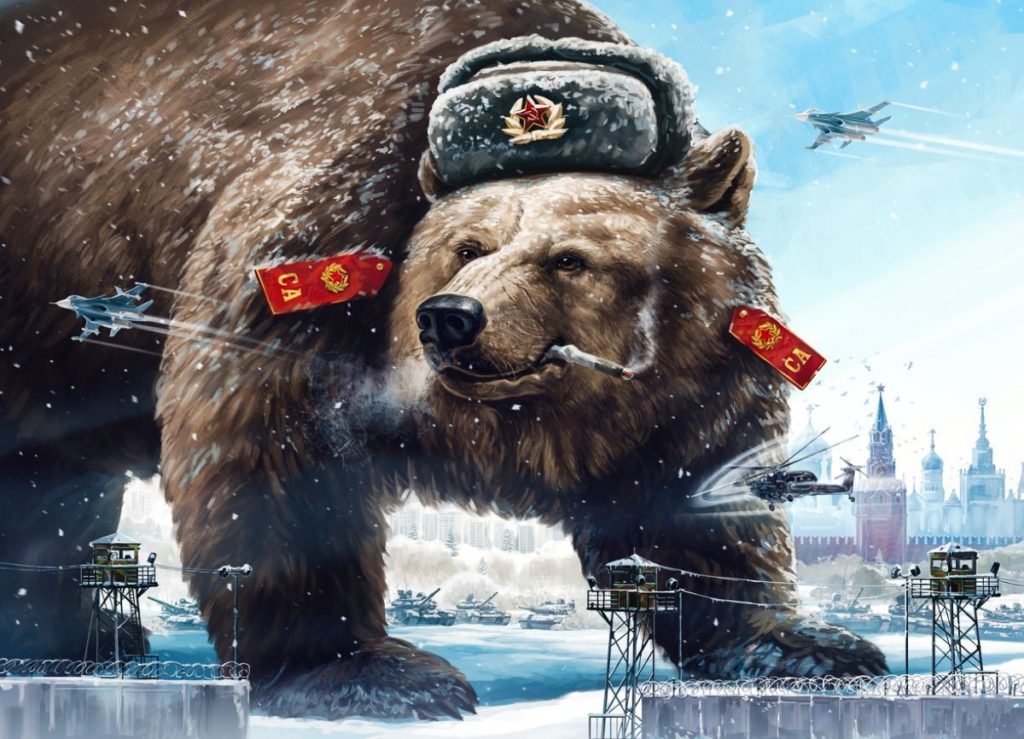Russia has fair-weather friends and allies in the Middle East

The spectre of Russian election interference as visualised by TVOntario, a Canadian publicly funded English language educational television station
Former Israeli foreign minister Shlomo Ben-Ami recently attempted to set everyone right on a crucial question: Is Russia the Middle East’s new hegemon?
His answer was somewhat surprising. Russia is not the region’s new hegemon, he concluded. Never forget that its economy is the size of South Korea’s and its military capabilities significantly less that of the United States. America’s withdrawal from the region has enabled the Russians to strut about for the moment, but this could easily pass if the US were to regain its interest and enthusiasm for keeping and building the peace.
Even so, Russia has managed a significant success in the Middle East, Mr Ben-Ami acknowledges. In its rush to recapture the old Soviet Union’s position in the region, it has successfully used a mix of “military force, arms deals, strategic partnerships, and the deployment of soft power”.
It’s all part of a grand plan, articulated by Russian president Vladimir Putin around 2012. At the time, he emphasized the need to expand Russia’s “educational and cultural presence in the world, especially in those countries where a substantial part of the population speaks or understands Russian”. Mr Ben-Ami notes that more recently, Mr Putin made clear that Israel was on the wishlist of countries where Russia wanted to expand its soft-power footprint.
Apparently, some of this was accomplished by means of the federal diaspora agency established by Russia. Known as Rossotrudnichestvo, it has opened centers for science and culture in Egypt, Jordan, Lebanon, Morocco, Syria, and Tunisia and expanded state-funded international TV network RT’s the Arabic service. (Incidentally, RT now has 6.3 million monthly viewers in six Arabic-speaking countries – Egypt, Iraq, Jordan, Morocco, Saudi Arabia, and the United Arab Emirates.)
The message from Moscow has fallen on receptive ears. In 2018, a mere 35 per cent of Arabs aged 18-24 viewed the US as an ally, compared to 63 per cent two years earlier. Russia has not been able to overtake the US in terms of image but 20% of respondents cited it as their “best friend” outside the MENA region.
Even so, Mr Ben-Ami suggests that Russia’s influence is unlikely to please too many and for too long. He particularly notes the Kremlin’s attempts to mediate between the Taliban and representatives of other Afghan groups. Russia “has never been particularly inclined toward long-term peace-building,” he writes, so there is little reason to think it “will be able to mediate, let alone underwrite, durable peace agreements” in the Middle East.
To those not quite persuaded by that assertion, Mr Ben-Ami offers another, possibly more convincing image: “Russia is confronting what are essentially swing states, willing to work with the power that gives them the best deal.”
This, at least, is true. Egypt has become a major buyer of Russian arms and a strategic ally in Libya. But Egypt is also strengthening its position vis-à-vis the US. Saudi Arabia must coordinate its oil activities with Russia to cope with the surge in US energy production, but it’s not likely to bristle at the US. Israel too is coordinating with Russia in Syria, but “has no incentive or ability to abandon its unique relationship with the US”. And finally, there’s Turkey. “Its top defense industries official, Ismail Demir, recently declared that the country has ‘allied relations’ with both Russia and the US,” writes Mr Ben-Ami. But that doesn’t mean it will give up its NATO membership.
In other words, Russia has fair-weather friends and allies in the Middle East.

